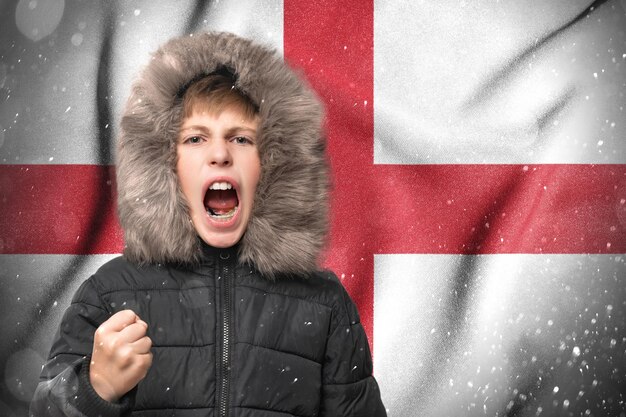Facts about Denmark

Denmark is the birthplace of LEGO, a beloved toy that has captured the hearts of children and adults worldwide.
The Danish flag, known as the Dannebrog, is the oldest continuously used national flag in the world.
Denmark is home to the famous Little Mermaid statue, inspired by Hans Christian Andersen’s fairytale.
Copenhagen, the capital city of Denmark, is often ranked as one of the world’s most livable cities.
Denmark consistently ranks as one of the happiest countries in the world, thanks to its high standard of living and strong social welfare system.
The Danish word hygge has gained international popularity, representing a cozy, comfortable, and content way of living.
Denmark is known for its excellent healthcare system, free education, and generous parental leave policies.
The country has a rich Viking heritage, with many historical sites and museums dedicated to this fascinating era.
Denmark is famous for its design and architecture, with iconic buildings such as the Sydney Opera House and the Pompidou Centre designed by Danish architects.
Danish people are avid cyclists, with a well-developed network of bicycle lanes and a strong cycling culture.
Denmark has a constitutional monarchy, with Queen Margrethe II as the reigning monarch.
The Danish economy is known for its strong focus on renewable energy and sustainability, with ambitious targets for reducing carbon emissions.
The Danish pastry, known as wienerbrød, is a delectable treat found in bakeries around the world.
Facts about Denmark part 2
Denmark is a small country with a population of around 5.8 million people.
The legal drinking age in Denmark is 18 years old, allowing young adults to enjoy responsibly.
Danish cuisine often features seafood, with dishes like pickled herring and smoked salmon being popular staples.
Denmark is home to the oldest operating amusement park in the world, Bakken, which opened in 1583.
Danish design has a minimalist and functional aesthetic, focusing on simplicity and high-quality craftsmanship.
Denmark is known for its long summer evenings, where the sun sets late and allows for extended outdoor activities.
Danish winters can be cold, but the concept of hygge helps locals embrace the cozy atmosphere and enjoy indoor activities.
Danish people are often referred to as Danish Vikings due to their strong maritime history.
Denmark has a well-developed social welfare system, with free healthcare and education for all citizens.
The Danish education system is highly regarded, with a focus on creativity, critical thinking, and equal opportunities.
Denmark consistently ranks high in gender equality indexes, having strong policies promoting women’s rights and equal opportunities.
Danish design has influenced various industries, including furniture, interior decor, and fashion.
Denmark has a rich musical heritage, with famous composers like Carl Nielsen and pop bands like Aqua and Lukas Graham.
The Danish monarchy is the oldest continuing line in Europe, tracing its roots back to the Viking Era.
Denmark is known for its progressive approach to sustainable urban planning, with many cities focusing on pedestrian-friendly infrastructure and green spaces.
Danish people have a reputation for being friendly, open-minded, and welcoming to visitors from around the world.
Denmark has a low crime rate, making it a safe and secure country to live and visit.
The Danish language, called Dansk, is part of the North Germanic group of languages, along with Swedish and Norwegian.
Denmark has a strong cycling culture, with approximately 56% of the population using bikes regularly.
Danish winters are often brightened by the tradition of julefrokost, a festive Christmas lunch with friends and family.
Denmark is a leader in wind energy production, with wind turbines being a common sight across the country’s landscape.
Danish people have a high level of trust in their government and institutions, contributing to the country’s stability and social cohesion.
Denmark has a rich literary history, with renowned authors such as H.C. Andersen and Søren Kierkegaard.
The Danish education system encourages students to think critically and fosters a love for lifelong learning.
Denmark is known for its stunning landscapes, including beautiful coastline, forests, and rolling countryside.
Danish innovation and entrepreneurship have led to the creation of successful global companies, such as Maersk and Novo Nordisk.
Denmark has a small, yet highly successful film industry, with films like The Hunt and A Royal Affair receiving international acclaim.
Danish people value work-life balance, with shorter working hours and a focus on leisure time and family.
Denmark is home to the iconic Tivoli Gardens, a historic amusement park that offers a magical experience for visitors of all ages.
Danish fashion brands, such as Ganni and Saks Potts, have gained global recognition for their unique and stylish designs.
Denmark is known for its excellent cycling infrastructure, with well-maintained bike paths and bike-friendly cities.
Danish summers are celebrated with various music festivals, including the renowned Roskilde Festival, attracting music lovers from around the world.

